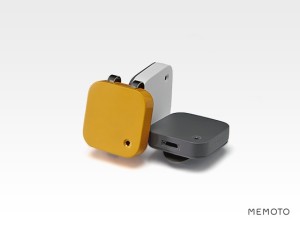By Ed McLaughlin and Wyn Lydecker
One exciting new product unveiled at SXSW was Memoto, the life-logging camera. It’s a tiny personal camera that captures a photo every 30 seconds, unless it’s too dark (or you put it away). Instagram and Facebook are major outlets for just those photos we remember to take, recognizing the importance of some moments (and breakfasts) and trying to capture them. Memoto will fill in any gaps between those filtered photos and profile shots with everything happening to the wearer as long as the camera is getting enough light to do so. From the article:
Eventually, its founders say, they hope that the photos in Memoto can be paired with other tracking and data applications to provide the photostream associated with that activity. For example, runners who use RunKeeper or Nike Plus could someday sync their Memoto data with their running data and watch a playback of the images they captured on their morning jogs.
This new invention reflects interest in a special group of data-gatherers: feedback enthusiasts, who were the focus of several other SXSW presentations, too. There are scores of apps designed to track where we’ve been and how many calories we were burning there. Memoto can help us get a visual sense of what a mile looks like, to go with our heart rate and stride length.
In addition, double-tapping the device sets off the shutter and that could also be programmed as a signal to send an image to a service like Evernote or a social networking site like Twitter.
It’s not live yet, as a feature, but social media integration is planned without question.
Did your mind flash to the 2004 movie, The Final Cut? Or perhaps the moment in The Circle when the main character first goes “Transparent”? That might be a tempting response to new devices and programs that track users. Much of the data goes to service providers with the intent to find out how to make their services more relevant to users’ everyday lives. Sometimes the data collection can get a little too close for comfort, but it has the potential to be mutually (if not evenly) beneficial.
It can be convenient for a supplier to know what you need before you do. Some of my favorite music has come from Pandora figuring out what I like and what’s similar to that, which is a product of their data gathering. Memeto will also allow virtual tours of countless places. Imagine being able to tour the Great Wall without having to pay any attention to your camera, and still come away with a perfect record of your time – a time-lapse video diary that even allows your housebound grandmother to walk with you, virtually, every step of the way.
No country will be undiscovered. With the application of existing visual technology, this interesting 2-D camera can take videos of people’s experiences from every angle and create 3-D maps you can walk around in, right in your own living room. – you can have a holodeck at home. The new technology will also eliminate the need for one person to sit out on family events to document them.
We are still in the era before this form of life capture is entirely effective.
Where will the world go next? There is a lot of room for new ideas on how to accrue more data points, but there are also plenty of opportunities for new tools to shape the astronomically large cloud of points already collected into something useful. There are openings for security to prevent collection of data that users don’t want to have captured. Soon there will be clamor for services offering to delete what has been collected. There are a lot of entrepreneurial possibilities here in the Information Age.
As a parting thought, here is another quotation from the article on Memeto:
There is no off switch or even a way to delete photos captured by the device.
Take that as challenge, invitation, or warning, as you will. What do you think it means for the next generation of startups?
Ed McLaughlin is currently co-writing the book “The Purpose Is Profit: Secrets of a Successful Entrepreneur from Startup to Exit” with Wyn Lydecker and Paul McLaughlin.
Copyright © 2014 by Ed McLaughlin All rights reserved.





Leave A Comment